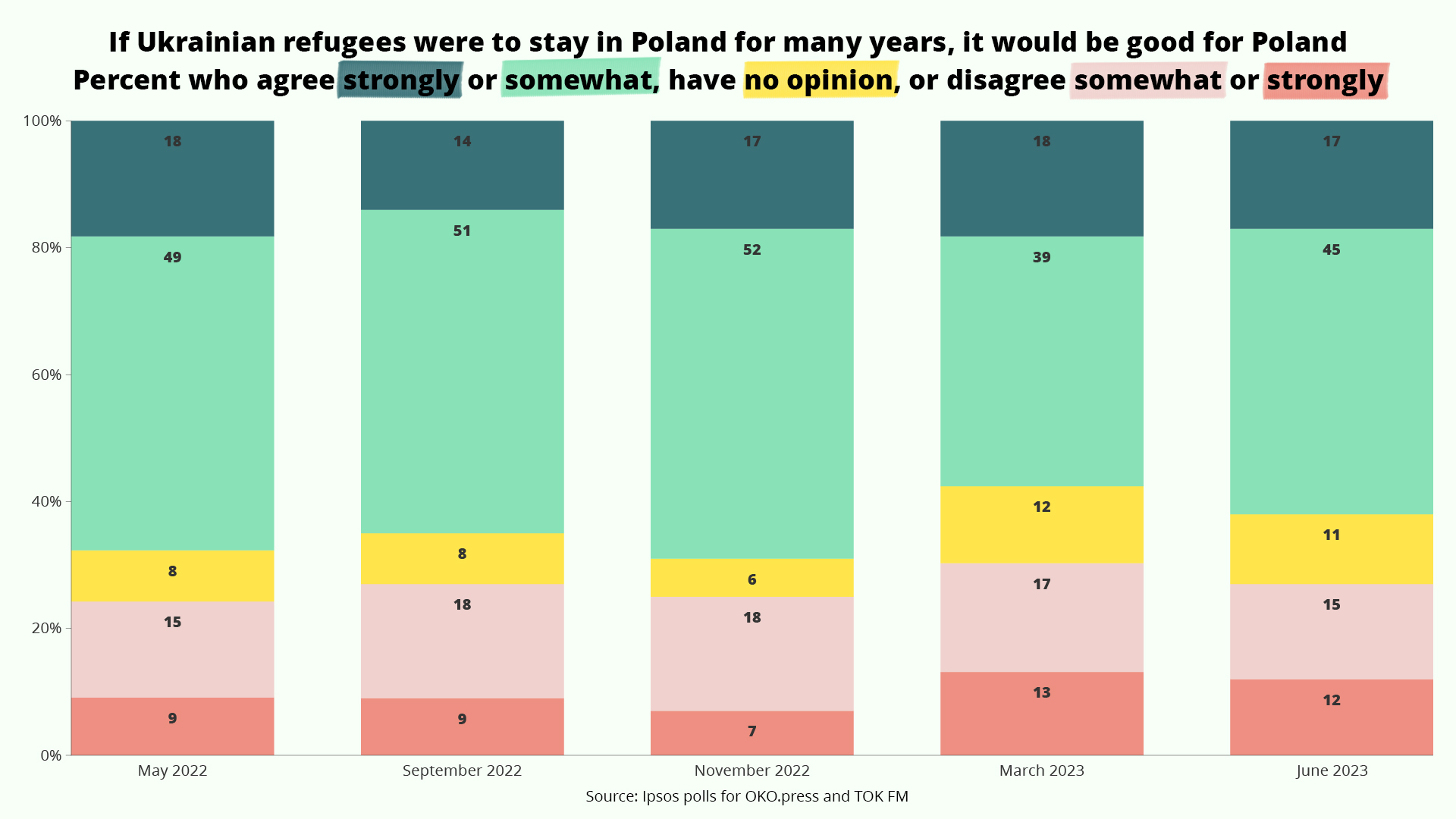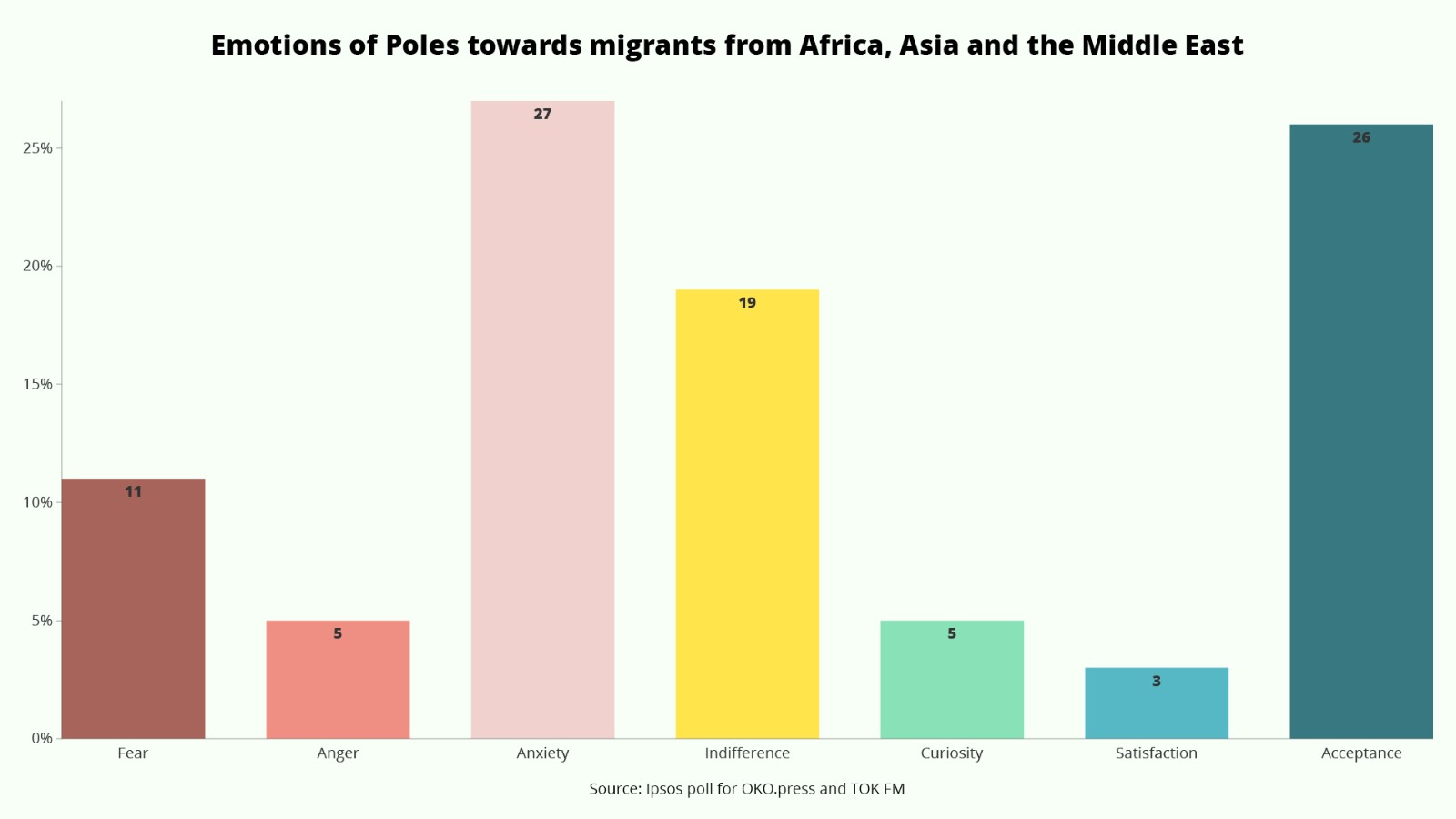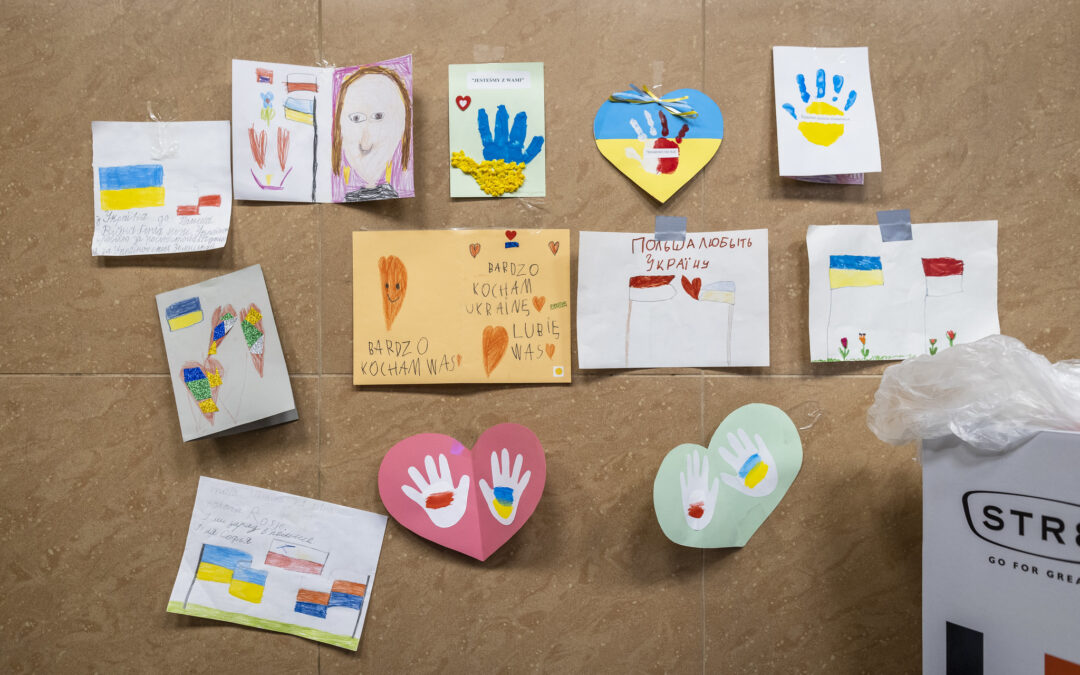Positive attitudes among Poles towards Ukrainian refugees remain high, nearly a year and a half after Russia’s full-scale invasion of Ukraine led millions to flee across the Polish border, a new poll has found
The survey by Ipsos for OKO.press and TOK FM, published today, found that 62% of Poles agree it would be “good for Poland if Ukrainian refugees were to stay for many years”. Only 27% disagreed. There are currently estimated to be over a million refugees from Ukraine in Poland.
In five polls conducted by Ipsos on this subject since May 2022, between 57% and 69% of Poles have declared a positive attitude towards the long-term stay of refugees from Ukraine in Poland, with only 24% to 30% expressing negative views.

The latest survey shows that men (66%) hold more positive views than women (59%). When respondents were broken down by political affiliation, a majority of supporters of almost all the main parties expressed positive views.
The one exception was supporters of the far-right Confederation (Konfederacja), among whom negative views (46%) slightly outweighed positive ones (44%) ones.
In 2022, Confederation protested against the large-scale reception of refugees, claiming they were being given “privileges” and were causing the “Ukrainisation of Poland”. However, with Polish society overwhelmingly supportive of the refugees, the party has this year played down such rhetoric.
A protest against the reception of Ukrainian refugees in a Polish town attracted no participants.
Another demonstration against the "Ukrainisation of Poland" in Warsaw – attended by two nationalist MPs – drew only a small crowd https://t.co/OVbVSAUY2o
— Notes from Poland 🇵🇱 (@notesfrompoland) September 26, 2022
Meanwhile, a similar poll, also conducted by Ipsos for OKO.press and published last week, shows that Poles’ opinions of migrants from countries outside Europe are much less positive.
When asked what emotion they most strongly felt regarding migrants from Africa, Asia and the Middle East, 43% chose the negative feelings of anxiety (27%), fear (11%) and anger (11%).
More positive emotions – acceptance (26%), curiosity (5%) and satisfaction (3%) – were declared by 34%, with a further 19% saying they felt indifference.

The two surveys have been published against the backdrop of an increasingly heated debate on migration in Poland ahead of this autumn’s parliamentary elections.
The ruling national-conservative Law and Justice (PiS) party has voiced strong opposition to a proposed EU migration pact that seeks to spread the burden of “irregular migrants” around the bloc. It plans to hold a referendum on the plan, despite it already have been approved by member states.
That has led the main centrist opposition party, Civic Platform (PO), to accuse PiS of hypocrisy, pointing out that the ruling party has overseen the largest ever wave of immigration to Poland, including many people from countries in Asia and the Middle East.
Opposition leader @donaldtusk has called for Poland to "regain control of its borders" amid an influx of Muslim migrants
His remarks were criticised by the government but also opposition figures, who accused him of a "bidding war" on anti-migrant rhetoric https://t.co/67wZMcqJPQ
— Notes from Poland 🇵🇱 (@notesfrompoland) July 3, 2023
Poland was the main destination for those fleeing Russia’s full-scale invasion of Ukraine last year. While many later moved on to other countries, and some returned home, over a million refugees are believed to remain in Poland.
An estimate last October showed that Poland had spent more than €8 billion to help refugees up to that point, the highest figure among the member countries of the Organisation for Economic Co-operation and Development (OECD).
However, the Ukrainian refugees, like the many economic migrants who came before them, have generally integrated into Polish society, taking up jobs and sending their children to school.
The Polish government estimates that 1.3-1.4 million Ukraine refugees remain in the country one year on from Russia’s full-scale invasion.
Poland has been the primary destination for those fleeing the war https://t.co/HQB8YAvcpQ
— Notes from Poland 🇵🇱 (@notesfrompoland) February 23, 2023
Main image credit: Wojtek Radwanski/European Union (under CC BY-NC-ND 2.0)

Alicja Ptak is deputy editor-in-chief of Notes from Poland and a multimedia journalist. She has written for Clean Energy Wire and The Times, and she hosts her own podcast, The Warsaw Wire, on Poland’s economy and energy sector. She previously worked for Reuters.




















